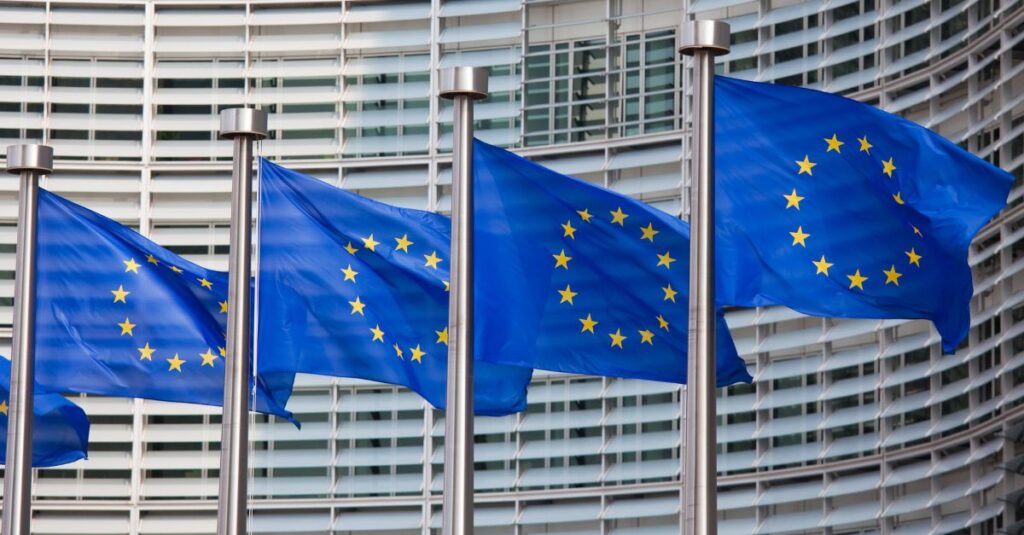New rules regarding financial services contracts concluded at a distance
1. Context and legislative framework
On 29 November, the new Directive (EU) 2023/2673 of the European Parliament and of the Council of 22 November 2023 on financial services contracts concluded at a distance (“New Directive“) was published. This Directive amends Directive 2011/83/EU of the European Parliament and of the Council of 25 October 2011 on consumer rights (“CRD“) and repeals Directive 2002/65/EC of the European Parliament and of the Council of 23 September 2002 concerning the distance marketing of consumer financial services (“Directive 2002/65/EC“).
The CRD did not cover financial services (i.e., banking, credit, insurance, personal pension, investment or payment services), which prevented it from complementing Directive 2002/65/EC on the distance marketing of consumer financial services. In this sense, the New Directive extends the scope of CRD to include a chapter expressly dedicated to financial services contracts concluded at a distance, Chapter III-A.
The repeal of Directive 2002/65/EC primarily stems from the necessity to modernize the regulations governing financial services contracts concluded at a distance. This need arises in response to advancements in the financial services market and the evolving methods of distance communication.
2. Main objectives
The main objectives of this New Directive are to modernise and simplify the rules applicable to financial services contracts concluded at a distance, creating a harmonised set of rules at the European level. The simplification and harmonisation of rules offer clear benefits to both consumers and financial institutions, as it guarantees increased transparency and legal certainty.
3. Adopted measures
The primary modifications introduced by this New Directive pertain to:
the right of withdrawal;
pre-contractual information;
dark patterns;
automated tools.
Right of withdrawal
The New Directive continues to provide for a period of 14 calendar days for exercising the right of withdrawal, without penalty and with no obligation to provide justification. The period runs from the date of conclusion of the distance contract or the date on which the consumer receives both the pre-contractual information and the contractual terms and conditions, if that date is later than the date of conclusion of the distance contract. If the consumer has received neither the pre-contractual information nor the contractual terms and conditions, the withdrawal period should expire at the latest 12 months and 14 calendar days after the conclusion of the distance contract and, if the consumer has not been informed of his right of withdrawal on a durable medium, he may exercise the right of withdrawal without any time limitation. There are also changes to the rules on the right of withdrawal in cases where contracts are concluded via an online interface, i.e., a website or application, which now include additional obligations for the provider of distance financial services. In these cases, the consumer will have to be guaranteed the possibility of exercising the right of withdrawal via the same interface they used to conclude the contract. This withdrawal function must be available and visible throughout the withdrawal period.
Pre-contractual information
The information requirements for consumer financial services in distance contracts closely resemble those outlined in Directive 2002/65/EC. Nonetheless, certain adjustments have been made to update and align these requirements with the digital environment.
This now includes, when applicable, the obligation to provide the consumer with information that the price has been personalised on the basis of an automated decision.
Whenever the financial service’s investment strategy integrates environmental or social factors, the consumer must be provided with information on any environmental or social objectives pursued by the financial service.
It is also compulsory to provide practical instructions for exercising the right of withdrawal referred to in the previous point, including information on the existence and location of the withdrawal function in the case of a contract concluded via an online interface (website or application).
Finally, the obligation to inform the consumer is introduced when, in the case of information provided electronically, the trader is allowed to organise this information by levels. This technique is known as layering and consists on placing key elements of pre-contractual information prominently on the first layer and displaying other detailed parts of the pre-contractual information in other layers. If layering is used, the consumer must have the option of viewing, saving and printing all the information on the various levels in one single document.
Dark patterns
The Directive adds rules on dark patterns. These correspond to ” practices that materially distort or impair, either on purpose or in effect, the ability of consumers who are recipients of the financial service to make autonomous and informed choices or decisions”[1]. These practices are prohibited by the New Directive in relation to the provision of financial services at a distance. In addition, Regulation (EU) 2022/2065 of the European Parliament and of the Council of 19 October 2022, on a single market for digital services, prohibits dark patterns on websites operated by intermediary service providers.
Recognizing the gravity of such practices within the realm of contracting financial services, the New Directive empowers Member States to implement stricter rules.
Automated tools
When the trader provides the consumer with pre-contractual explanations regarding financial services contracts remotely via automated tools such as chatbots, automated counselling or interactive tools, there should always be the possibility for the consumer to opt for human intervention, free of charge. The rules on automated tools are similar to those in the 2nd Consumer Credit Directive (see the briefing note on the New rules for consumer credit in the EU – Directive 2023/2225).
Other changes
The New Directive also extends the application of certain rules already existing in the CRD to distance financial services contracts, namely those relating to additional payments, enforcement, inertia selling and reporting.
4. Entry into force and transposition
The New Directive was published in the Official Journal of the European Union on 28 November and the measures introduced entered into force twenty days after its publication, i.e., on 18 December 2023. Member-States will have a period of 24 months, until 19 December 2025, to transpose the New Directive into their legal systems, with the new provisions having to be applied from 19 June 2026.
5. How can we help?
Although the new rules will only come into force in 2026, financial services providers should anticipate compliance with the obligations arising from this New Directive, particularly in terms of adapting the websites and mobile applications used to contract financial services to the new rules in terms of dark patterns, automated tools and pre-contractual information layering.
Abreu Advogados has a team specialised in Banking and Finance Law that can assist clients in monitoring and analysing new legislation that creates obligations and in implementing solutions to facilitate compliance, particularly those that will be imposed by the measures contained in this New Directive.
[1] See Recital 41 of the New Directive











































